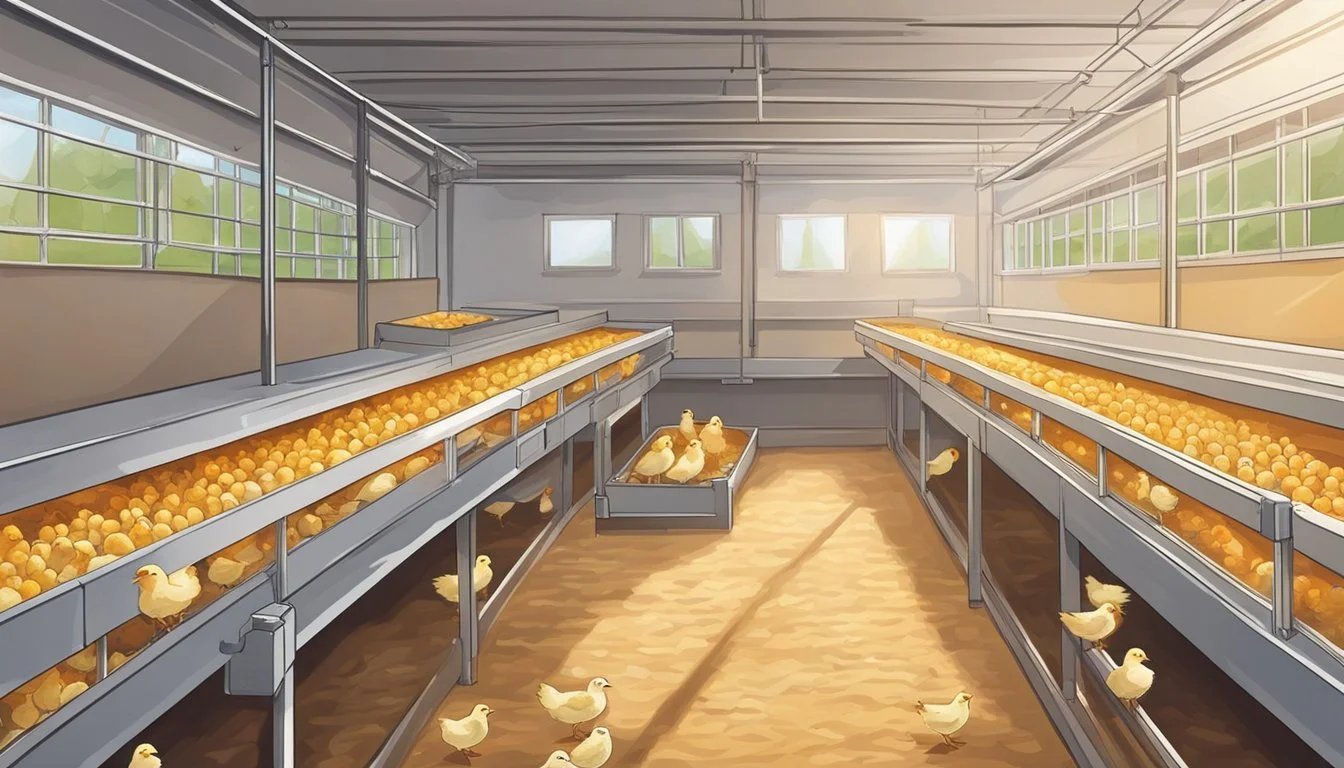- هذا الموضوع فارغ.
-
الكاتبالمشاركات
-
-
يناير 21, 2025 الساعة 11:17 م #543345
 Agric4Profitsمدير عام
Agric4Profitsمدير عام
A brooder house plays a crucial role in the early stages of poultry development, providing a controlled environment for chicks to grow safely and efficiently.
Within this environment, specific routine activities are carried out daily to ensure that the chicks receive the care they need to thrive.
Understanding these activities is key to maintaining a healthy brooding system, preventing diseases, and maximizing chick growth.
In this article, we will discuss the four most important routine activities carried out in a brooder house to ensure the well-being of the chicks.
1. temperature and humidity monitoring
Temperature control is one of the most important activities carried out in a brooder house. Newly hatched chicks are extremely sensitive to temperature, and they rely on external heat sources to maintain their body warmth.
Ensuring the correct temperature within the brooder house is vital for chick comfort and health. Typically, the temperature is maintained at around 32-35°C (90-95°F) for the first week, gradually decreasing as the chicks grow.
Humidity also plays an essential role in chick development. The right level of humidity helps prevent dehydration, promotes proper respiratory function, and reduces stress on the chicks.
Routine checks of both temperature and humidity are necessary to maintain an optimal environment and prevent heat stress or chilling.
2. feeding and watering
Feeding and watering are daily tasks that must be closely monitored in a brooder house. Newly hatched chicks require a highly nutritious feed to support their rapid growth and immune system development.
Typically, a specially formulated starter feed rich in protein, vitamins, and minerals is provided. The feed should be placed in clean, accessible feeders, and fresh water should be available at all times to keep the chicks hydrated.
Ensuring that chicks have constant access to clean water is critical to their health, as dehydration can lead to stunted growth and even death.
Regular checks should be made to ensure there are no blockages in the water supply, and that water containers are kept clean to prevent contamination.
3. cleanliness and sanitation
Maintaining cleanliness in a brooder house is essential to preventing disease outbreaks and ensuring the chicks grow in a healthy environment.
Regular cleaning and sanitizing of the brooder house are necessary to reduce the buildup of feces, food debris, and bedding material that can harbor harmful bacteria and parasites.
Routine cleaning activities include replacing soiled bedding, disinfecting feeders and drinkers, and scrubbing the walls and floors of the brooder house to maintain a hygienic environment.
Sanitation should be performed frequently to reduce the risk of diseases like coccidiosis, which can spread rapidly in unsanitary conditions.
4. health monitoring and management
Routine health monitoring is a crucial activity in a brooder house to detect and manage potential health issues early on.
This involves observing the chicks for signs of illness, such as lethargy, loss of appetite, or abnormal droppings.
Regular checks should also be made for external parasites like mites or lice, as well as for any signs of respiratory issues.
In addition to visual inspections, preventive health measures such as vaccination and deworming should be carried out according to the recommended schedule.
A well-managed brooder house will include records of health treatments and interventions, allowing farmers to track the health history of their flock and address any concerns promptly.
In conclusion, the routine activities carried out in a brooder house are fundamental to ensuring the health, growth, and well-being of poultry chicks.
Temperature and humidity control, consistent feeding and watering, maintaining cleanliness, and regular health monitoring are all critical tasks that must be performed daily.
By staying on top of these activities, poultry farmers can help their chicks develop into healthy, strong birds, laying the foundation for a successful and productive flock.
-
-
الكاتبالمشاركات
- يجب تسجيل الدخول للرد على هذا الموضوع.






